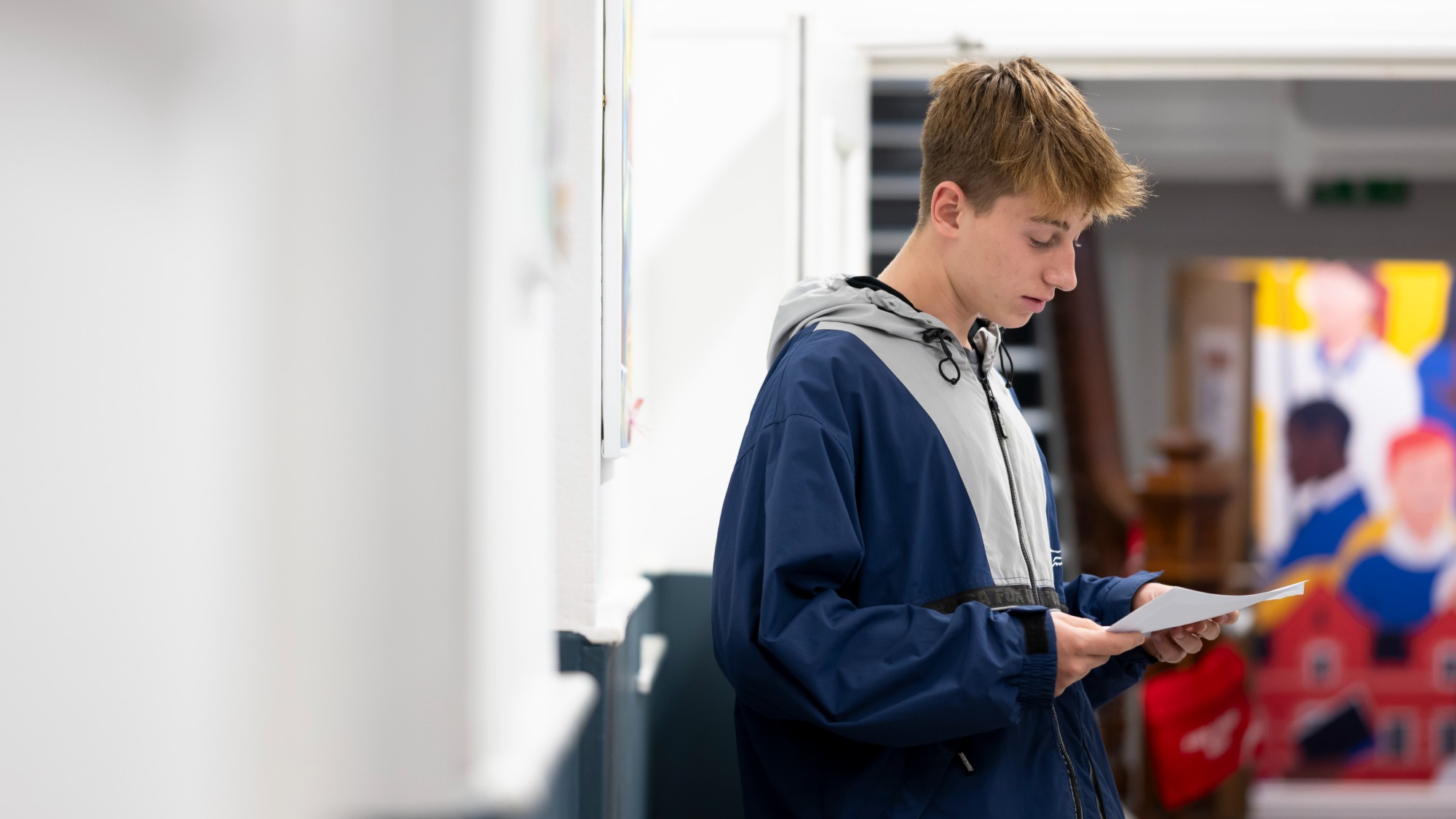Should GCSEs be scrapped?
Cancellation of exams as schools shut has fuelled debate about whether testing at 16 should be ditched for good

A free daily email with the biggest news stories of the day – and the best features from TheWeek.com
You are now subscribed
Your newsletter sign-up was successful
GCSE and A level exams have been cancelled in Britain this year as schools, colleges and nurseries close for the foreseeable future in a bid to slow the coronavirus outbreak.
Following the closure announcement this week, Education Secretary Gavin Williamson told MPs that officials were working with exam boards “to ensure that children get the qualifications that they need”.
Many pupils and parents remain anxious despite such reassurances, but others are calling for the government to take the opportunity to scrap GCSEs for good.
The Week
Escape your echo chamber. Get the facts behind the news, plus analysis from multiple perspectives.

Sign up for The Week's Free Newsletters
From our morning news briefing to a weekly Good News Newsletter, get the best of The Week delivered directly to your inbox.
From our morning news briefing to a weekly Good News Newsletter, get the best of The Week delivered directly to your inbox.
What’s the case for scrapping GCSEs?
Geoff Barton, general secretary of the Association of School and College Leaders, said the idea of ditching GCSEs had a “lot of merit” because they belonged to an era when many young people left school at 16.
Since the school-leaving age in England and Wales was raised to 18 in 2015, examining children at 16 interrupts their progress “in a contest in which some will rise and others will fall”, says Philip Collins in The Times.
Kenneth Baker, who introduced the exams in the 1980s when he was education secretary, said last year that “now it’s time to scrap them”.
A free daily email with the biggest news stories of the day – and the best features from TheWeek.com
Writing in The Independent, Baker warned that GCSE exams have “a profound impact on young people’s mental health”, as well as impacting on young people’s overall school experience and the behaviour of their teachers.
The current GCSE system pushes technical and creative subjects out of the curriculum, says Baker, and has resulted in a 57% fall in design and technology entries since 2010, and a 20% drop in creative subjects in the same period.
GCSE performance tables put pressure on teachers to drive students towards academic subjects and exam skills that may not be important to some children in further education, training, or later life.
The skills shortage in the UK is costing the economy billions of pounds per year. “Businesses are absolutely clear how to fill those skills shortages and the answer is not more rote learning of facts and figures,” says the paper.
And against?
The broader range of subjects that GCSEs examine means that many qualifications are still open to children progressing to education and training above 16.
By channelling some students towards certain types of training before 16 and scrapping GCSEs, doors will close and options will narrow for some. This could increase the class gap in education.
GCSEs also offer young people a chance to work out what they are good at, and what they enjoy at a relatively early stage in their academic and professional career.
Will GCSEs be scrapped?
GCSEs are certainly off the table this year, but they look set to make a comeback in 2021.
Last year, the Department for Education defended GCSEs as “gold standard” exams.
The BBC reported last year that the government “shows no sign of supporting calls to scrap GCSEs”.
-
 How the FCC’s ‘equal time’ rule works
How the FCC’s ‘equal time’ rule worksIn the Spotlight The law is at the heart of the Colbert-CBS conflict
-
 What is the endgame in the DHS shutdown?
What is the endgame in the DHS shutdown?Today’s Big Question Democrats want to rein in ICE’s immigration crackdown
-
 ‘Poor time management isn’t just an inconvenience’
‘Poor time management isn’t just an inconvenience’Instant Opinion Opinion, comment and editorials of the day
-
 How will new V level qualifications work?
How will new V level qualifications work?The Explainer Government proposals aim to ‘streamline’ post-GCSE education options
-
 The pros and cons of banning cellphones in classrooms
The pros and cons of banning cellphones in classroomsPros and cons The devices could be major distractions
-
 School phone bans: Why they're spreading
School phone bans: Why they're spreadingFeature 17 states are imposing all-day phone bans in schools
-
 Schools: The return of a dreaded fitness test
Schools: The return of a dreaded fitness testFeature Donald Trump is bringing the Presidential Fitness Test back to classrooms nationwide
-
 Send reforms: government's battle over special educational needs
Send reforms: government's battle over special educational needsThe Explainer Current system in 'crisis' but parents fear overhaul will leave many young people behind
-
 Education: Can public schools be religious?
Education: Can public schools be religious?Feature A Supreme Court seems ready to rule in favor of religious charter schools in Oklahoma, which could reshape public education
-
 America's academic brain drain has begun
America's academic brain drain has begunIN THE SPOTLIGHT As the Trump administration targets universities and teachers, educators are eying greener academic pastures elsewhere — and other nations are starting to take notice
-
 Schools' Send crisis: how can it be fixed?
Schools' Send crisis: how can it be fixed?Today's Big Question Government urged to reform support for children with special educational needs and disabilities and save councils from bankruptcy